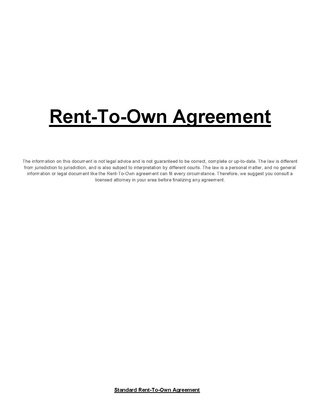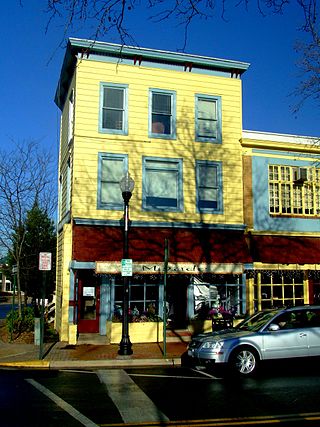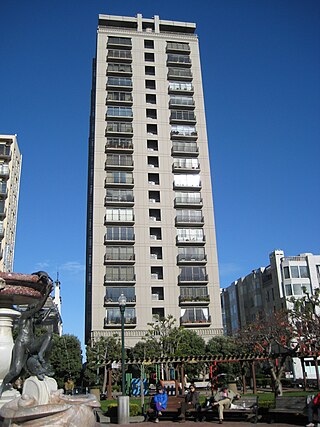
A landlord is the owner of a house, apartment, condominium, land, or real estate which is rented or leased to an individual or business, who is called a tenant. When a juristic person is in this position, the term landlord is used. Other terms include lessor, housing provider, and owner. The term landlady may be used for the female owners. The manager of a pub in the United Kingdom, strictly speaking a licensed victualler, is referred to as the landlord/landlady. In political economy it refers to the owner of natural resources alone from which an economic rent, a form of passive income, is the income received.

A lease is a contractual arrangement calling for the user to pay the owner for the use of an asset. Property, buildings and vehicles are common assets that are leased. Industrial or business equipment are also leased. Basically a lease agreement is a contract between two parties: the lessor and the lessee. The lessor is the legal owner of the asset, while the lessee obtains the right to use the asset in return for regular rental payments. The lessee also agrees to abide by various conditions regarding their use of the property or equipment. For example, a person leasing a car may agree to the condition that the car will only be used for personal use.
A leasehold estate is an ownership of a temporary right to hold land or property in which a lessee or a tenant has rights of real property by some form of title from a lessor or landlord. Although a tenant does hold rights to real property, a leasehold estate is typically considered personal property.
Key money is one of several forms of payment made to a landlord. The term has various meanings in different parts of the world. It sometimes means money paid to an existing tenant who assigns a lease to a new tenant where the rent is below market. It sometimes means a bribe to a landlord. In other parts of the world, it is used synonymously with normal security deposits, which are used to cover nonpayment of rent and excessive damage to a rental unit.

A Lease-Purchase Contract, also known as a lease purchase agreement or rent-to-own agreement, allows consumers to obtain durable goods or rent-to-own real estate without entering into a standard credit contract. It is a shortened name for a lease with option to purchase contract. For real estate, a lease purchase contract combines elements of a traditional rental agreement with an exclusive right of first refusal option for later purchase of the home.
Property management is the operation, control, maintenance, and oversight of real estate and physical property. This can include residential, commercial, and land real estate. Management indicates the need for real estate to be cared for and monitored, with accountability for and attention to its useful life and condition. This is much akin to the role of management in any business.
Assignment is a legal term used in the context of the laws of contract and of property. In both instances, assignment is the process whereby a person, the assignor, transfers rights or benefits to another, the assignee. An assignment may not transfer a duty, burden or detriment without the express agreement of the assignee. The right or benefit being assigned may be a gift or it may be paid for with a contractual consideration such as money.
A rental agreement is a contract of rental, usually written, between the owner of a property and a renter who desires to have temporary possession of the property; it is distinguished from a lease, which is more typically for a fixed term. As a minimum, the agreement identifies the parties, the property, the term of the rental, and the amount of rent for the term. The owner of the property may be referred to as the lessor and the renter as the lessee.
Attornment, in English real property law, is the acknowledgment of a new lord by the tenant on the alienation of land. Under the feudal system, the relations of landlord and tenant were to a certain extent reciprocal. So it was considered unreasonable to the tenant to subject him to a new lord without his own approval, and it thus came about that alienation could not take place without the consent of the tenant. Attornment was also extended to all cases of lessees for life or for years. The necessity for attornment was abolished by the Administration of Justice Act 1705.

Commercial property, also called commercial real estate, investment property or income property, is real estate intended to generate a profit, either from capital gains or rental income. Commercial property includes office buildings, medical centers, hotels, malls, retail stores, multifamily housing buildings, farm land, warehouses, and garages. In many U.S. states, residential property containing more than a certain number of units qualifies as commercial property for borrowing and tax purposes.
A lease option is a type of contract used in both residential and commercial real estate. In a lease-option, a property owner and tenant agree that, at the end of a specified rental period for a given property, the renter has the option of purchasing the property.

A hell or high water clause is a clause in a contract, usually a lease, which provides that the payments must continue irrespective of any difficulties which the paying party may encounter, usually in relation to the operation of the leased asset. The clause usually forms part of a parent company guarantee that is intended to limit the applicability of the doctrines of impossibility or frustration of purpose. The term for the clause comes from a colloquial expression that a task must be accomplished "come hell or high water", that is, regardless of any difficulty.
Leaseback, short for "sale-and-leaseback", is a financial transaction in which one sells an asset and leases it back for the long term; therefore, one continues to be able to use the asset but no longer owns it. The transaction is generally done for fixed assets, notably real estate, as well as for durable and capital goods such as airplanes and trains. The concept can also be applied by national governments to territorial assets; prior to the Falklands War, the government of the United Kingdom proposed a leaseback arrangement whereby the Falklands Islands would be transferred to Argentina, with a 99-year leaseback period, and a similar arrangement, also for 99 years, had been in place prior to the handover of Hong Kong to mainland China. Leaseback arrangements are usually employed because they confer financing, accounting or taxation benefits.

Canadian contract law is composed of two parallel systems: a common law framework outside Québec and a civil law framework within Québec. Outside Québec, Canadian contract law is derived from English contract law, though it has developed distinctly since Canadian Confederation in 1867. While Québecois contract law was originally derived from that which existed in France at the time of Québec's annexation into the British Empire, it was overhauled and codified first in the Civil Code of Lower Canada and later in the current Civil Code of Quebec, which codifies most elements of contract law as part of its provisions on the broader law of obligations. Individual common law provinces have codified certain contractual rules in a Sale of Goods Act, resembling equivalent statutes elsewhere in the Commonwealth. As most aspects of contract law in Canada are the subject of provincial jurisdiction under the Canadian Constitution, contract law may differ even between the country's common law provinces and territories. Conversely; as the law regarding bills of exchange and promissory notes, trade and commerce, maritime law, and banking among other related areas is governed by federal law under Section 91 of the Constitution Act, 1867; aspects of contract law pertaining to these topics are harmonised between Québec and the common law provinces.
In the field of commercial real estate, especially in the United States, a net lease requires the tenant to pay, in addition to rent, some or all of the property expenses that normally would be paid by the property owner. These include expenses such as property taxes, insurance, maintenance, repair, and operations, utilities, and other items. These expenses are often categorized into the "three nets": property taxes, insurance, and maintenance. In US parlance, a lease where all three of these expenses are paid by the tenant is known as a triple net lease, NNN Lease, or triple-N for short and sometimes written NNN.

Landlord–tenant law is the field of law that deals with the rights and duties of landlords and tenants.
In commercial real estate leases in the United States, the landlord, rather than the tenant, is usually responsible for real estate taxes, maintenance, and insurance. In a "net lease", in addition to base rent, the tenant or lessee is responsible for paying some or all of the recoverable expenses related to real-estate ownership. As the rent collected under a net lease is "net" after expenses are passed through to tenants to be paid, the rent tends to be lower than rent charged under a "gross lease".
The South African law of lease is an area of the legal system in South Africa which describes the rules applicable to a contract of lease. This is broadly defined as a synallagmatic contract between two parties, the lessor and the lessee, in terms of which one, the lessor, binds himself to give the other, the lessee, the temporary use and enjoyment of a thing, in whole or in part, or of his services or those of another person; the lessee, meanwhile, binds himself to pay a sum of money as compensation, or rent, for that use and enjoyment. The law of lease is often discussed as a counterpart to the law of sale.
Lessor is a participant of the lease who takes possession of the property and provides it as a leasing subject to the lessee for temporary possession. For example, in leasehold estate, the landlord is the lessor and the tenant is the lessee. The lessor may be the owner of the property or an agent authorized on the owner's behalf. Commercial banks, credit non-bank organizations, leasing companies often act as lessors.

Arnold v Britton[2013] EWCA Civ 902 is an English contract law case on implied terms.







